Social Exercise

How does exercise influence social skills in children ?
Exercise plays a crucial role in shaping children's social skills by enhancing communication, empathy, emotional intelligence, resilience, problem-solving abilities, healthy risk-taking, and leadership skills. Physical activity helps children build self-confidence, promotes teamwork, develops empathy, enhances emotional intelligence, increases resilience, enhances problem-solving abilities, encourages healthy risk-taking, and fosters leadership skills. These skills are essential for establishing positive relationships with peers and contributing to their communities. Therefore, it is imperative to encourage children to engage in regular exercise to support their overall development and success in life.
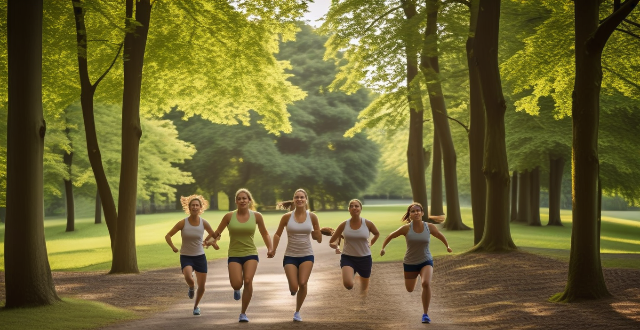
How does regular exercise impact the social well-being of seniors living alone ?
Regular exercise is crucial for enhancing the social well-being of seniors living alone, as it improves mood and mental health, increases social interaction, enhances cognitive function, and reduces the risk of chronic diseases. Engaging in regular exercise can help seniors maintain their independence and improve their overall quality of life.
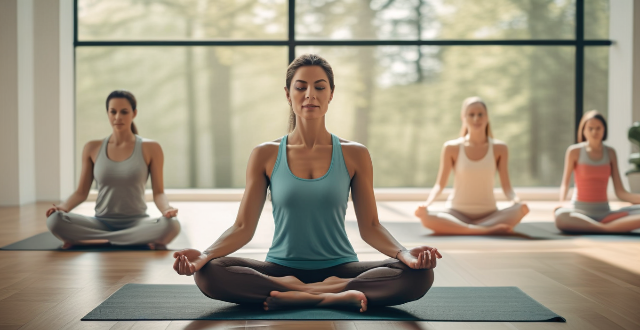
Are there any specific exercise programs designed for seniors that focus on building social connections ?
The article discusses the benefits of exercise programs for seniors that focus on building social connections. It highlights how regular exercise can improve physical health, mental health, and increase social connections in seniors. Examples of such programs include SilverSneakers, Tai Chi, walking groups, yoga, and water aerobics. The article emphasizes the importance of staying active and connected within communities as we age.

How does exercise benefit socialization in older adults ?
Exercise is not only beneficial for physical health but also plays a crucial role in enhancing socialization among older adults. Here's how: Improved Mood and Confidence, Increased Opportunities for Social Interaction through Group Activities and Outdoor Exercise, Enhanced Cognitive Function, Physical Health Benefits Supporting Social Engagement, and Mental Health and Well-being. In conclusion, regular exercise provides numerous avenues for increased socialization among older adults by improving emotional well-being, cognitive function, physical health, and creating opportunities for interaction through various activities. It's a holistic approach to enhancing the social lives of seniors, contributing to their overall quality of life.

How does exercise affect mood and emotions ?
Exercise has numerous positive impacts on mood and emotions, including the release of endorphins for a "runner's high," reduction in anxiety and stress by lowering cortisol levels, and improvement in self-esteem through goal setting and physical changes. Regular activity also enhances sleep quality by regulating sleep cycles and cognitive function by increasing blood flow to the brain. Social interaction during exercise provides emotional support and long-term benefits include prevention of depression and building resilience against stress.

What are some popular social activities that involve physical exercise ?
Popular Social Activities Involving Physical Exercise include community sports leagues, outdoor adventure groups, fitness classes, cycling and running events, water sports, winter sports, gym partners, and community challenges. These activities promote physical health while fostering social connections and a sense of community.

How does exercise influence the brain's chemistry related to emotions ?
Exercise significantly impacts brain chemistry, enhancing emotionalExercise significantly impacts brain chemistry, enhancing emotional neurotransmitters like doin, promoting neuroplasticity through BDNF, and boosting self-efficacy and social interaction. Incorporating enjoyable physical activities into daily routines can lead to improved mental health.

Can exercise boost the immune system ?
Exercise can indeed boost the immune system through various mechanisms, including enhanced circulation, reduced inflammation, weight management, stress reduction, improved sleep, increased self-esteem and mental health, microbiome diversity, temperature regulation, prevention of chronic diseases, and social interaction. Regular moderate exercise is generally considered beneficial for the immune system, but it's essential to consult with healthcare professionals to determine the appropriate amount and intensity of exercise for individual needs and circumstances.

How does exercise influence self-esteem ?
Exercise has a profound impact on self-esteem, positively influencing confidence, body image, and mental health. Physical benefits include weight management through fat reduction and muscle tone, as well as improved cardiovascular health and immune system function. Mental benefits include stress reduction through endorphin release and mindfulness, and enhanced cognitive function with improved memory and problem-solving abilities. Social benefits come from community building through group activities and support systems, as well as personal achievement through goal setting and feedback. Overall, regular physical activity can significantly enhance self-esteem by promoting physical, mental, and social well-being.

How does exercise improve cognitive function ?
Exercise plays a crucial role in enhancing cognitive function, including memory, attention, and problem-solving skills. It promotes brain plasticity, increases blood flow and oxygenation, reduces inflammation, and improves sleep quality. Incorporating exercise into your routine can be done through various activities such as running, swimming, or yoga. Start small and gradually increase intensity and duration, find enjoyable activities, incorporate mindful movement, make it social, set realistic goals, and consult with a professional if needed.

How does regular exercise contribute to occupational health ?
**Summary: Regular Exercise in Occupational Health** The article discusses the role of regular exercise in promoting occupational health, which encompasses physical, mental, and social well-being. It outlines the benefits of regular physical activity, including improved stamina, reduced injury risk, enhanced immune system, stress reduction, better cognitive function, increased resilience, team building, and a healthy work-life balance. The text emphasizes that incorporating exercise into daily routines can significantly enhance job performance and overall employee well-being. Employers are encouraged to implement wellness programs with exercise initiatives to foster a healthier and more productive workforce.

How does exercise contribute to mental rejuvenation ?
Exercise plays a crucial role in mental rejuvenation by releasing endorphins, improving blood flow, enhancing neuroplasticity, reducing stress, improving sleep quality, facilitating social interaction, and boosting self-esteem. Regular physical activity can significantly contribute to improved cognitive functions, emotional stability, and overall mental well-being.
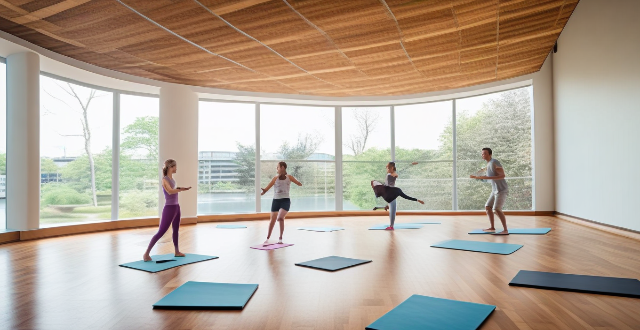
How can seniors with limited mobility engage in physical activities that promote social interaction ?
Engaging seniors with mobility issues in physical activities is crucial for their health and social well-being. Adaptive sports like water aerobics, seated yoga, and tai chi offer low-impact workouts with a community feel. Assistive devices such as walking aids and resistance bands support exercise, while community centers provide opportunities for group games and art activities. Home-based solutions include teleconferencing classes and pet therapy programs. By tailoring activities to individual needs, seniors can stay active and connected, promoting both physical health and social interaction.

What is the relationship between exercise and mental health ?
Exercise has a profound impact on mental health, enhancingExercise has a profound impact on mental health, enhancing reducing stress, improving sleep quality enhancing mood and cognitive function, reducing stress, improving sleep quality, and fostering social interaction. Regular physical activity stimulates the release of neurotransmitters like endorphins, serotonin, and dopamine, leading to improved mood, relaxation, and better cognitive abilities. It also helps manage cortisol levels, promotes deeper sleep, and provides emotional support through group activities, ultimately contributing to overall mental well-being.
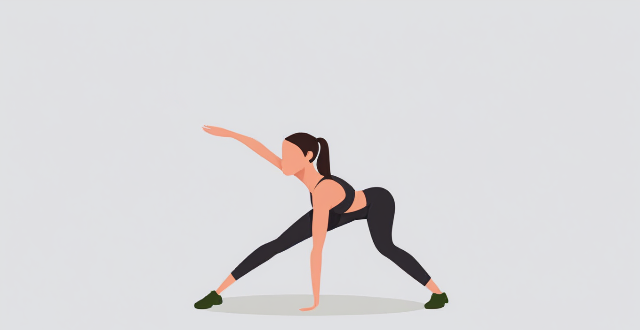
How does exercise help in managing stress ?
Stress is an inevitable part of life, but regular exercise can help manage it effectively. Exercise releases endorphins, reduces muscle tension, improves sleep quality, boosts self-esteem and confidence, provides a sense of accomplishment, and promotes social interaction. To incorporate exercise into your daily routine, start slowly, find an activity you enjoy, make it a part of your routine, mix up your routine, and don't overexert yourself. By doing so, you can reap the numerous benefits of exercise for stress management and overall well-being.

How does physical exercise contribute to mental well-being ?
The text discusses how physical exercise contributes to mental well-being by releasing endorphins, boosting self-esteem, improving sleep quality, facilitating social interaction, and enhancing cognitive function. Regular physical activity can lead to long-term improvements in mental health, including reduced stress, anxiety, and depression, as well as better emotional stability and overall mood. Engaging in group sports or exercise classes provides opportunities for social interaction, which is essential for mental well-being, while achieving fitness goals can boost self-esteem and self-confidence. Better sleep patterns from exercise can lead to improved cognitive function and emotional regulation, while enhanced cognition may aid in the management of mental health conditions. Incorporating regular physical activity into your routine can promote mental well-being through these various mechanisms.
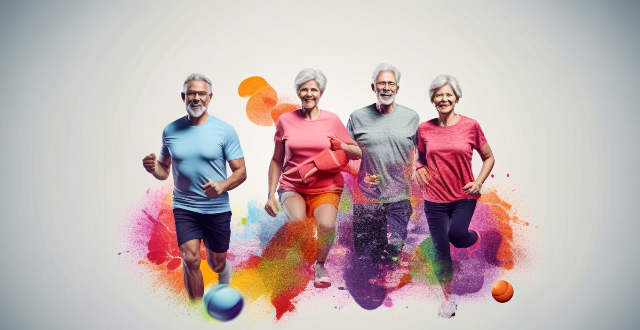
What are the psychological benefits of group exercise for older adults ?
The article discusses the psychological benefits of group exercise for older adults, including increased social interaction, enhanced cognitive function, and increased motivation and accountability. It emphasizes how group exercise can reduce feelings of isolation and loneliness, improve mood and mental health, stimulate brain activity, delay the onset of cognitive decline, provide peer support and encouragement, and promote goal setting and achievement. Overall, it suggests that participating in group exercise activities can greatly enhance the overall well-being of older adults and contribute to a higher quality of life as they age.
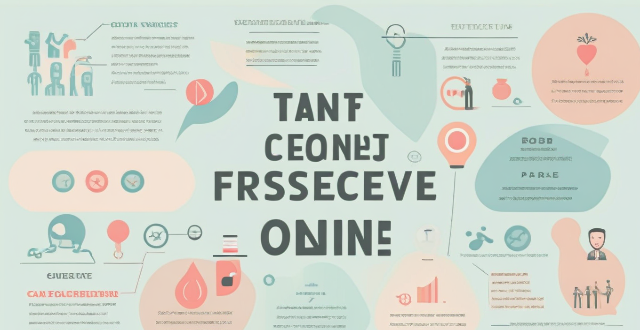
Can regular exercise be an effective way to prevent excessive online gaming ?
Regular exercise can help prevent excessive online gaming by improving mental health, increasing self-control, enhancing social interaction, and improving sleep quality. While it may not completely eliminate gaming behaviors, it serves as a valuable tool in promoting overall well-being and reducing reliance on online gaming as a primary source of entertainment and social interaction.

What are the best types of exercises for seniors to improve their social lives ?
As seniors age, it becomes increasingly important to stay active and engaged in their communities. One way to do this is by participating in physical activities that not only improve their health but also provide opportunities for social interaction. Here are some of the best types of exercises for seniors to improve their social lives: 1. Walking Clubs 2. Yoga or Tai Chi Classes 3. Water Aerobics 4. Dance Classes 5. Group Fitness Classes 6. Sports Leagues or Clubs

How does exercise influence aging and longevity ?
Exercise is crucial for maintaining good health and well-being, with numerous benefits including improved cardiovascular health and reduced risk of chronic diseases. It also has a significant impact on aging and longevity, as regular physical activity can help maintain muscle mass, improve bone density, and reduce the risk of chronic diseases. Exercise also has mental health benefits, such as improved cognitive function and reduced risk of depression and anxiety. Numerous studies have shown that exercise can lead to an increased lifespan by reducing the risk of premature death from various causes. Examples of long-lived populations, such as the Okinawans and Nicoyans, demonstrate the importance of an active lifestyle in promoting healthy aging and longevity. Incorporating exercise into your daily routine can lead to a higher quality of life during your golden years and potentially extend your lifespan.
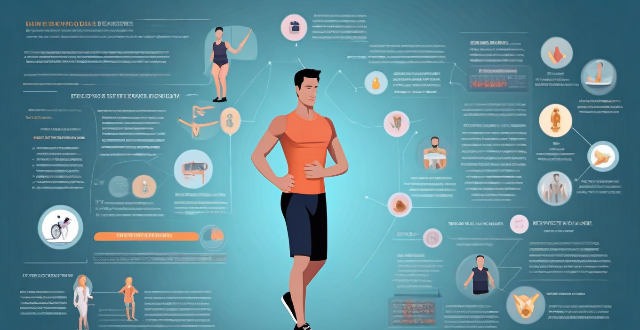
How does regular exercise improve the quality of life ?
Regular exercise is vital for a healthy lifestyle, enhancing physical and mental well-being significantly. It strengthens the immune system, controls weight, prevents diseases, and increases energy levels. Mentally, it reduces stress, improves mood, boosts self-esteem, and enhances brain function. Socially, it promotes interaction, provides a sense of community, and encourages healthy competition. Regular exercise is an investment that pays lifelong dividends.

How does sports contribute to social inclusion ?
Sports have the power to promote social inclusion by breaking down barriers, promoting teamwork, providing opportunities for participation, building confidence and self-esteem, and promoting health and wellbeing.
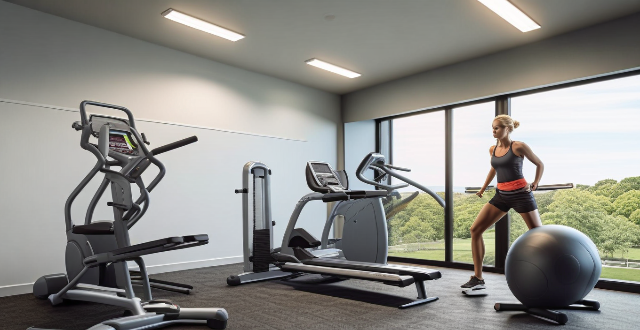
What are the psychological benefits of exercise for the elderly ?
Exercise for the elderly has several psychological benefits, includingExercise for the elderly has several psychological benefits, including symptoms, enhanced cognitive function, including mood improvement, reduced depression symptoms, enhanced cognitive function, increased social interaction, and better sleep quality. Regular physical activity boosts endorphins, reduces anxiety and stress, improves brain health, delays age-related cognitive decline, promotes community engagement, increases independence, and regulates sleep patterns. These benefits contribute to better mental health and well-being in older adults.

How does regular exercise contribute to overall health management ?
This text discusses the importance of regular exercise for overall health management, highlighting its physical, mental, and emotional benefits. It emphasizes that exercise not only helps maintain physical health but also significantly contributes to mental and emotional well-being. The article lists various ways in which regular exercise contributes to overall health management, including improving cardiovascular fitness, aiding in weight management, enhancing muscle and bone health, boosting the immune system, preventing chronic diseases, reducing stress, improving mood, enhancing cognitive function, boosting self-esteem, providing opportunities for social interaction, and contributing to personal achievement. The text concludes by emphasizing that regular exercise is a crucial tool for managing overall health and that incorporating it into one's lifestyle is one of the best investments one can make for their health and well-being.
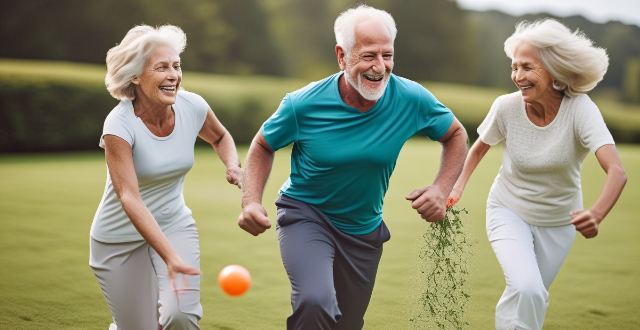
How does exercise benefit the health of older adults ?
Exercise plays a crucial role in maintaining the health and well-being of older adults. Regular physical activity can significantly improve their quality of life by preventing diseases, promoting longevity, and enhancing mental health. This text discusses the various benefits of exercise for seniors, including improvements in strength, endurance, mobility, balance, chronic disease management, stress reduction, emotional health, cognitive functioning, social interaction, independence, and overall quality of life. Engaging in regular physical activity is one of the most effective ways for seniors to maintain a healthy and fulfilling lifestyle as they age.
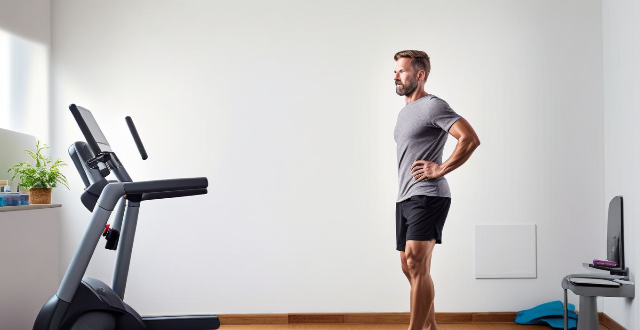
What are the long-term effects of consistent exercise on mental health ?
Consistent exercise has a multitude of long-term effects on mental health, including improved mood, reduced anxiety and stress, better sleep, increased self-esteem, enhanced cognitive function, and social interaction. These benefits make regular physical activity a powerful tool in maintaining good mental health.
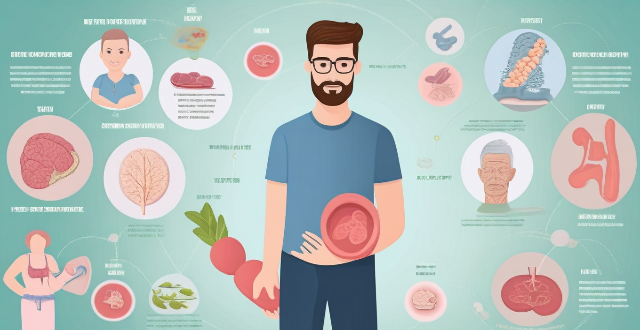
How can older adults benefit from exercise in terms of mental health ?
Exercise is crucial for maintaining and improving mental health in older adults. It enhances mood, reduces depression symptoms, improves cognitive function, manages stress, and provides opportunities for social interaction. Incorporating regular exercise can significantly promote overall well-being in the aging population.

Can aerobic exercise improve my cardiovascular health ?
Aerobic exercise is essential for maintaining and improving cardiovascular health, offering benefits such as strengthened heart muscle, lowered blood pressure, increased HDL cholesterol, reduced inflammation, weight management, improved circulation, and better blood sugar regulation. Regular aerobic activities like walking, jogging, cycling, swimming, or group fitness classes can significantly enhance overall heart health. The American Heart Association recommends at least 150 minutes of moderate-intensity aerobic exercise weekly, spread throughout the week, to achieve these benefits.

Can exercise physiology help in managing stress and anxiety levels ?
Exercise physiology plays a significant role in managing stress and anxiety levels by promoting various physiological responses that counteract the negative effects of these conditions on the body. By incorporating regular physical activity into your lifestyle, you can improve your overall mental well-being and reduce the impact of stress and anxiety on your daily life.

How does exercise affect sleep quality ?
Exercise is crucial for maintaining a healthy lifestyle and has a significant impact on sleep quality. Regular physical activity can improve sleep onset, increase deep sleep, reduce stress and anxiety, regulate body temperature, and promote better breathing during sleep. To incorporate exercise into your daily routine, start slowly, choose enjoyable activities, schedule workouts, mix up your routine, be mindful of timing, listen to your body, stay hydrated, get enough rest, seek support, and track your progress.